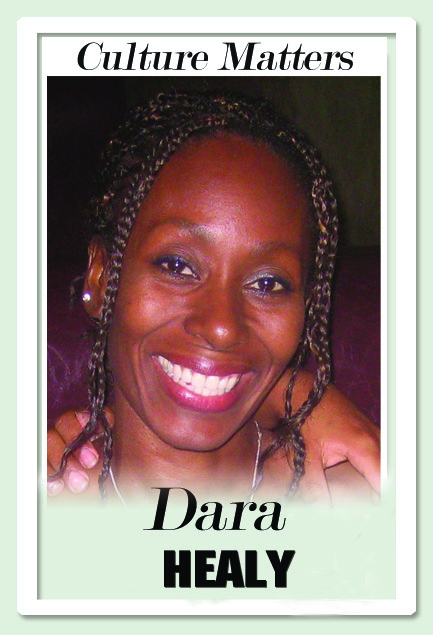Woke up with freedom on my mind

Culture Matters
“In struggle one not only fights against something – injustice, oppression – but one must struggle for something equally real but positive. That's the other part of the equation.”
– Stokely Carmichael/Kwame Ture – Ready for Revolution
TODAY IS Emancipation Day. In my mind’s eye, I am standing in front of the Treasury Building in Port of Spain, previously the official residence of the governor. In 1834, Governor George Hill would have emerged from his balcony to read the Emancipation Proclamation to hundreds of enslaved waiting to be declared legally free.
This was anything but a calm, smooth event. In spite of the presence of police, the enslaved shouted
pas de six ans – no more six years – referring to the apprenticeship scheme designed to keep them on the plantation beyond the official declaration of emancipation. Incredibly, “the next day the crowd reappeared. Some were arrested for breaches of order and twenty-three were publicly flogged...Four long years would pass before full freedom would be won...”
Freedom is defined as “the condition or right of being able or allowed to do, say, think...whatever you want to, without being controlled or limited.” In 2020, we no longer have shackles, estate passes or encomiendas. We have liberties such as freedom of worship and freedom of speech. We are even free to refuse to abide by preventative measures that keep us all safe during a global pandemic. On this day, as we contemplate the realities of our world, what does freedom mean to us?
Kamau Brathwaite, renowned Barbadian poet and writer, has spoken of the collective trauma of the Caribbean geo-psychic space. In other words, the lasting mental anguish caused by genocide, enslavement and the restriction of our freedoms in one form or another. For Brathwaite, our indigenous cultural traditions were an essential aspect of healing.
Indeed, for decades Caribbean artists used their creativity to analyse and find solutions to historical restriction of our freedoms. Aldrick danced the dragon costume in his search for personhood. Mr Biswas battled crippling self-doubt amidst the dual brutality of caste and colonialism. Calypsonians, pannists and mas-makers claimed their space by treating with critical socio-economic and political issues. Younger generations used the medium of film to explore what it means to come from a heritage of indigenous peoples.
And through street theatre like Kambule and Freedom Morning Come we are able to understand and connect with some of our struggles for freedom.
But is it enough? Are we engaging with our space in a way that is free? Or are we creating new systems and modes of behaviour that still rely on Western notions of who we are? In 1992, Brathwaite pointed out that “one of the first things we ought to be doing in our schools is to make our pupils mandatorily learn what is around them...Name the trees in the yard. Name the fruits...Because unless you name them and understand them, you can’t ever have a science from them, and if you can’t have a science from them, then you can’t have an economy from them.”
For TT, this raises questions about our priorities as an independent nation and whether we see our history, arts and culture as essential to releasing generational trauma that still exists. At a policy level we are yet to harness the potential of our heritage and culture to impact our space. We ignore 1970, 1884, 1881, even 1990. We do not teach Patois, document the language of the Black Indian, or share the lessons behind the river festival Ganga Dhara. The stickfighters who fought for our Carnival are no longer seminal to the festival.
Over the past months, human beings have been intensely confronted by debates about freedom. Apart from the renewed Black Lives Matter protests sparked by the killing of George Floyd, a global virus has restricted our ability to earn and recreate. We have willingly relinquished basic rights, even as we open ourselves to increased personal controls by transnational corporations like Google and Facebook.
In reality, as human beings, no one can give us freedom and no one can take it away – we are human therefore we are free. Today is Emancipation Day, when we remember that our African ancestors fought for the right to assert their humanity. In my mind’s eye, I’m standing in front of the Treasury Building in Port of Spain looking up at a monument that recognises their struggle and their worth. In my mind’s eye I smile, because it is the first of many.
Dara E Healy is a performance artist, communications specialist and founder of the NGO, the Indigenous Creative Arts Network – ICAN


Comments
"Woke up with freedom on my mind"